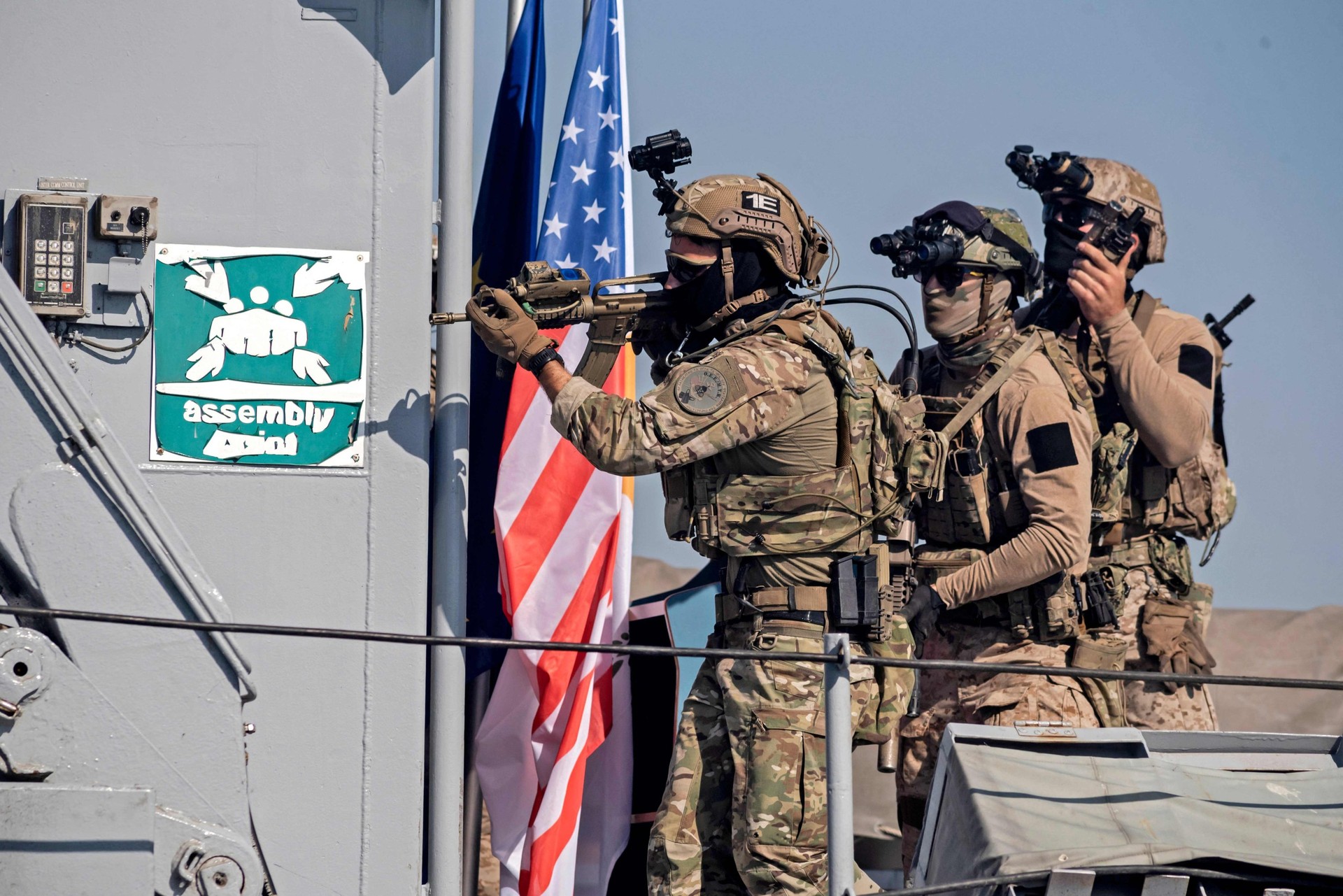
U.S. President Joe Biden, in the final days of his presidency, issued a directive enabling Greek Cypriots to purchase arms directly from the U.S. government and gain access to surplus American military equipment.
This development marks a significant step in strengthening Greek Cypriot-U.S. defense ties and raises concerns about potential new tensions in the Eastern Mediterranean, particularly for Türkiye. The move comes at a time when Ankara and Athens have recently entered a calmer phase of relations, characterized by increased communication and cooperation.
Biden's executive action emphasized that furnishing "defense articles and defense services" to Greek Cypriot would "strengthen the security of the United States and promote world peace."
Defense Articles and Defense Services Under the Foreign Assistance Act of 1961 and the Arms Export Control Act
Pursuant to the authority vested in me as President by the Constitution and the laws of the United States, including section 503(a) of the Foreign Assistance Act of 1961 and section3(a)(1) of the Arms Export Control Act, I hereby find that the furnishing of defense articles and defense services to the Republic of Cyprus will strengthen the security of the United States and promote world peace.
You are authorized and directed to transmit this determination and the accompanying memorandum of justification to the Congress and to publish this determination in the Federal Register.
U.S. President Joe Biden

The development is seen as a pivotal moment for Greek Cypriot, which has been working to deepen its ties with the U.S. since Washington lifted a decadeslong arms embargo in 2020.
The Greek Cypriot government views the decision as a recognition of Greek Cypriot, however this development might create new tensions in the region. Recently Celeste Wallander, the U.S. assistant secretary of defense for international Security Affairs, and Vasilis Palmas, minister of defense of the Greek Cypriot Administration, signed an agreement allegedly aimed at strengthening defense cooperation between the United States and the Greek Cypriot administration.
The new roadmap outlines a framework for enhancing bilateral collaboration on defense and security issues over the next five years, focusing on addressing current and emerging security challenges in the Eastern Mediterranean.
The roadmap, which follows the second U.S.-Greek Cypriot Administration Defense and Security Cooperation Dialogue held in Washington in June, reportedly aims to strengthen the nation’s ability to respond to humanitarian crises, counter malign influence, and improve military interoperability.
U.S. Ambassador to Greek Cypriot Julie D. Fisher described the move as "an important step in deepening the relationship, enhancing security cooperation and promoting stability" in the region.
The directive follows the 2023 election of Greek Cypriot President Nikos Christodoulides, who has emphasized Greek Cypriot's "pro-Western" stance and expressed a willingness to join NATO when conditions allow. Christodoulides has also invited U.S. agencies, including the FBI, to assist in training Greek Cypriot authorities on financial crime prevention.
Türkiye's Foreign Ministry condemned the recent signing of a roadmap for bilateral defense cooperation between the United States and the Greek Cypriot Administration on Wednesday.
In a press release, Türkiye criticized the agreement as detrimental to the security of the Turkish Cypriot side. The ministry echoed the sentiments expressed by the Turkish Republic of Northern Cyprus (TRNC) and voiced full support for the TRNC's reaction to the development.
The ministry contended that the U.S. actions, including the announcement in June of a strategic dialogue with the Greek Cypriot Administration, compromise the previously neutral stance of the U.S. on the Cyprus issue.

Greek Cypriot administration maintained a non-aligned foreign policy, balancing relations with both Washington and Moscow. During the U.S. arms embargo, it sourced military equipment from alternative suppliers, including Russia.
The Greek Cypriot's arsenal includes Soviet-era T80 main battle tanks and TOR-M1 anti-aircraft missile systems. Biden's latest directive enables Greek Cypriots to purchase U.S.-made weapons at a lower cost through direct government deals.
While the Greek Cypriot administration strengthens its defense ties with the U.S., it continues to serve as a "safe haven" for Russian oligarchs, reflecting its complex foreign policy dynamics.